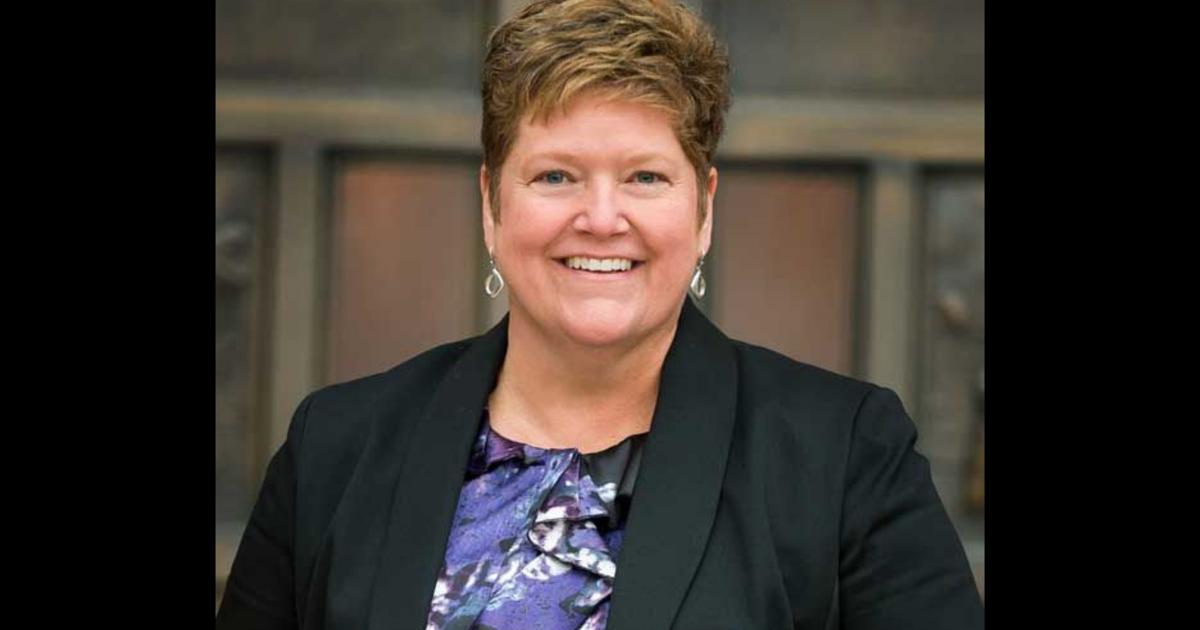
Charlotte N. Sweeney will be the next federal judge in Colorado, following a Wednesday U.S. Senate vote of 48-46 to confirm her.
Sweeney, a workers’ rights attorney, will be the first openly gay federal judge in Colorado. Her confirmation also marks the first time that three women will simultaneously serve as trial judges on the state’s seven-member U.S. District Court.
President Joe Biden announced in early August 2021 that he would nominate Sweeney to succeed R. Brooke Jackson, an Obama administration appointee who took a form of judicial semi-retirement known as senior status in September. Sweeney’s nomination failed to advance outright from the U.S. Senate Committee on the Judiciary, after all Republicans on the evenly-divided panel voted against her without explanation. This month, the full Senate was able to discharge her nomination from the committee and take a final confirmation vote.
“This is so well deserved. I’m thrilled,” said Nana Naisbitt, who Sweeney represented in 2016 when Naisbitt sued her Telluride-based employer for sex discrimination. “She could see the big picture and the minute details simultaneously. She had deep knowledge of the law and she was unwaveringly fair. Tough as nails, yet very compassionate.”
When Sweeney takes office, Colorado’s federal trial court will once again have its full roster of seven district judges. However, there is an impending vacancy around the corner: Christine M. Arguello, a George W. Bush appointee, will take senior status in mid-July. Her intended successor, U.S. Magistrate Judge Nina Y. Wang, also appeared before the Senate’s judiciary committee on Wednesday for her hearing.
Sweeney, who is 53 this year, graduated from the University of Denver’s law school in 1995. Since 2008, she has run a Denver-based law firm handling employment discrimination cases. She also serves on the board of directors of the Matthew Shepard Foundation, named for the gay University of Wyoming student whose 1998 murder led to efforts to enact hate-crimes legislation.
In 2017, she assisted state lawmakers in drafting the Equal Pay for Equal Work Act, which ultimately passed in 2019 and prohibits a variety of compensation practices that have the potential to result in pay discrimination. Sweeney told the Senate’s judiciary committee that she had no prior experience with the legislative process before then.
“In the first decade of my employment, over half of my cases involved sexual harassment and racial harassment. Significant U.S. Supreme Court cases in the late 1990s propelled that focus,” Sweeney wrote in response to the committee’s questionnaire. “Due to the amendments to the Americans with Disabilities Act, many cases during the second decade of my career involved the representation of employees with disabilities who needed accommodations in the workplace.”
She added that pay disparity cases involving women are also a focus of her law practice.
Sweeney has tried 20 cases, most of which were jury trials. The majority of her caseload lay in federal court.
She was recently involved in litigation the U.S. Equal Employment Opportunity Commission brought against the University of Denver for pay discrimination toward female law faculty. The school settled the case and agreed to pay in excess of $2.6 million. K.K. DuVivier, one of the DU law professors involved, recalled that Sweeney was able to be both assertive and effective during the case.
“I think she’ll be able to hear voices that traditionally haven’t been heard,” said DuVivier. “She’ll be fair to everyone and I don’t think anyone should be concerned and think, ‘Oh, because she represented plaintiffs, she can’t see the other side’.”
In written responses to senators’ questions after her confirmation hearing, Sweeney shed further light on her qualifications and her views on the law. She believed that judges owe their primary duty to upholding the law, but also have a secondary duty to the parties appearing before them.
Asked by U.S. Sen. Ben Sasse, R-Neb., whether she believed that specific precedent-setting decisions of the U.S. Supreme Court, such as Roe v. Wade, were “correctly decided,” Sweeney responded by calling it “inappropriate” to opine about the work of the Supreme Court. However, she believed that certain cases were “beyond dispute.”
Those included Brown v. Board of Education, which struck down school segregation policies; Gideon v. Wainwright, which established the right to a court-appointed attorney for indigent defendants; Loving v. Virginia, which invalidated interracial marriage bans; and Marbury v. Madison, which established the power of courts to declare laws unconstitutional.
Sweeney declined to explain in detail her views on hot-button legal issues like qualified immunity, controlled substances and systemic racism in the criminal justice system. U.S. Sen. Ted Cruz, R-Texas, attempted to have her weigh in on whether courts should provide training to their employees that people are “inherently racist, sexist, or oppressive” based on their race or sex. It was an apparent reference to the academic framework of critical race theory, which Cruz has railed against.
“I am not aware of any human resources training that may occur should I be confirmed,” Sweeney responded succinctly.
To date, Sweeney is Biden’s third judicial nominee for Colorado to receive Senate confirmation. U.S. District Court Judge Regina M. Rodriguez and Judge Veronica S. Rossman of the U.S. Court of Appeals for the 10th Circuit took their seats last year.
U.S. Sens. Michael Bennet and John Hickenlooper recommended Sweeney to the White House last May. Hickenlooper presided over Wednesday’s confirmation vote in the Senate.






